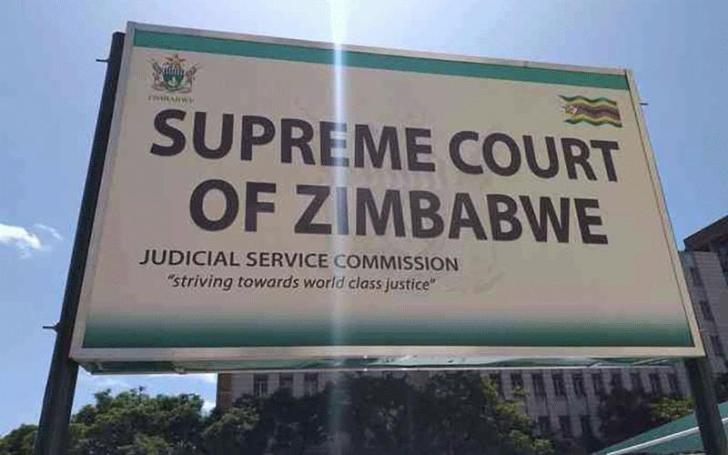News / National
Supreme Court saves Ugandan couple from Harare houses seizure
03 Aug 2025 at 11:17hrs |
0 Views

The Supreme Court of Zimbabwe has quashed an unexplained wealth order previously issued against Ugandan nationals Robert Kwesiga and his wife, Sande Hilga Kwesiga, ruling that the prosecutor general failed to meet legal thresholds required for such an order.
The couple, who purchased two residential properties in Harare's affluent Mount Pleasant and Vainona suburbs for US$115,000 and US$165,000 respectively, had been accused of money laundering and illicit financial activities by the Asset Forfeiture Unit under Prosecutor-General Loice Matanda-Moyo.
In 2021, the High Court froze the properties after the State claimed the couple's declared income—particularly Kwesiga's earnings during his tenure with the Danish Red Cross between 2007 and 2013—did not justify the cash purchases. But in a unanimous July 11 judgment, Supreme Court Justices Tendai Uchena, Felistus Chatukuta, and Samuel Kudya ruled that the High Court's decision was based on speculative reasoning rather than concrete evidence.
"The prosecutor general improperly reasoned backwards," the judges said. "She inferred suspicion from the mere fact of the property purchases and then used her failure to confirm the couple's income as proof that they could not have legally afforded them."
The Supreme Court criticised the prosecution's reliance on an anonymous tip-off and its failure to independently verify the couple's financial capacity or to present any objective evidence linking them to criminal activity.
"Clearly, the facts and circumstances disclosed by the prosecutor general and accepted by the court a quo were insufficient to warrant a prudent man to suspect that the appellants had committed the criminal offences of money laundering, breaching the exchange control regulations, or trading in hoarded cash," the ruling stated.
The Kwesigas had submitted evidence of legitimate income sources, including the US$80,000 sale of a flat in Uganda, payslips from international employment, and bank statements confirming their financial capability.
Despite this, the High Court had initially ruled that the absence of a detailed "paper trail" to support every dollar spent justified a freezing order. The Supreme Court disagreed, ruling in favour of the appellants and awarding them costs.
The decision delivers a significant blow to the State's efforts to expand asset forfeiture through unexplained wealth orders without satisfying stringent evidentiary standards. Legal analysts say the ruling sets a precedent for how courts should interpret suspicion-based financial crimes in the absence of corroborated proof.
The couple, who purchased two residential properties in Harare's affluent Mount Pleasant and Vainona suburbs for US$115,000 and US$165,000 respectively, had been accused of money laundering and illicit financial activities by the Asset Forfeiture Unit under Prosecutor-General Loice Matanda-Moyo.
In 2021, the High Court froze the properties after the State claimed the couple's declared income—particularly Kwesiga's earnings during his tenure with the Danish Red Cross between 2007 and 2013—did not justify the cash purchases. But in a unanimous July 11 judgment, Supreme Court Justices Tendai Uchena, Felistus Chatukuta, and Samuel Kudya ruled that the High Court's decision was based on speculative reasoning rather than concrete evidence.
"The prosecutor general improperly reasoned backwards," the judges said. "She inferred suspicion from the mere fact of the property purchases and then used her failure to confirm the couple's income as proof that they could not have legally afforded them."
The Supreme Court criticised the prosecution's reliance on an anonymous tip-off and its failure to independently verify the couple's financial capacity or to present any objective evidence linking them to criminal activity.
"Clearly, the facts and circumstances disclosed by the prosecutor general and accepted by the court a quo were insufficient to warrant a prudent man to suspect that the appellants had committed the criminal offences of money laundering, breaching the exchange control regulations, or trading in hoarded cash," the ruling stated.
The Kwesigas had submitted evidence of legitimate income sources, including the US$80,000 sale of a flat in Uganda, payslips from international employment, and bank statements confirming their financial capability.
Despite this, the High Court had initially ruled that the absence of a detailed "paper trail" to support every dollar spent justified a freezing order. The Supreme Court disagreed, ruling in favour of the appellants and awarding them costs.
The decision delivers a significant blow to the State's efforts to expand asset forfeiture through unexplained wealth orders without satisfying stringent evidentiary standards. Legal analysts say the ruling sets a precedent for how courts should interpret suspicion-based financial crimes in the absence of corroborated proof.
Source - The Standard
Join the discussion
Loading comments…
































